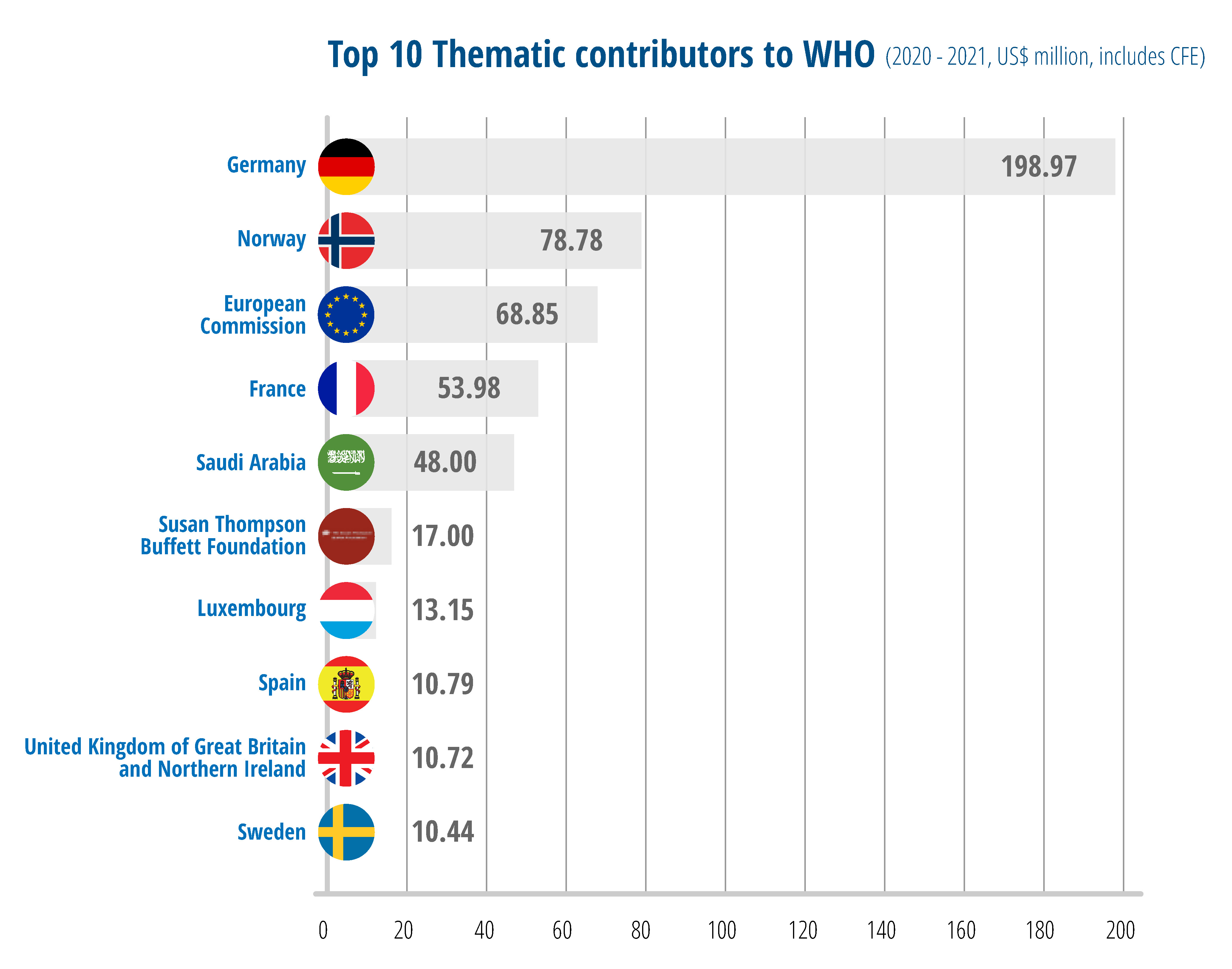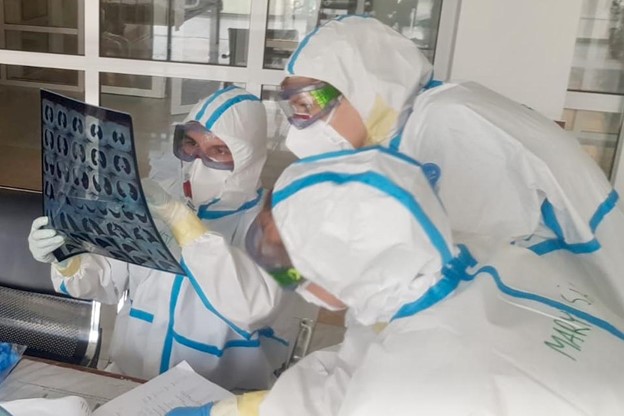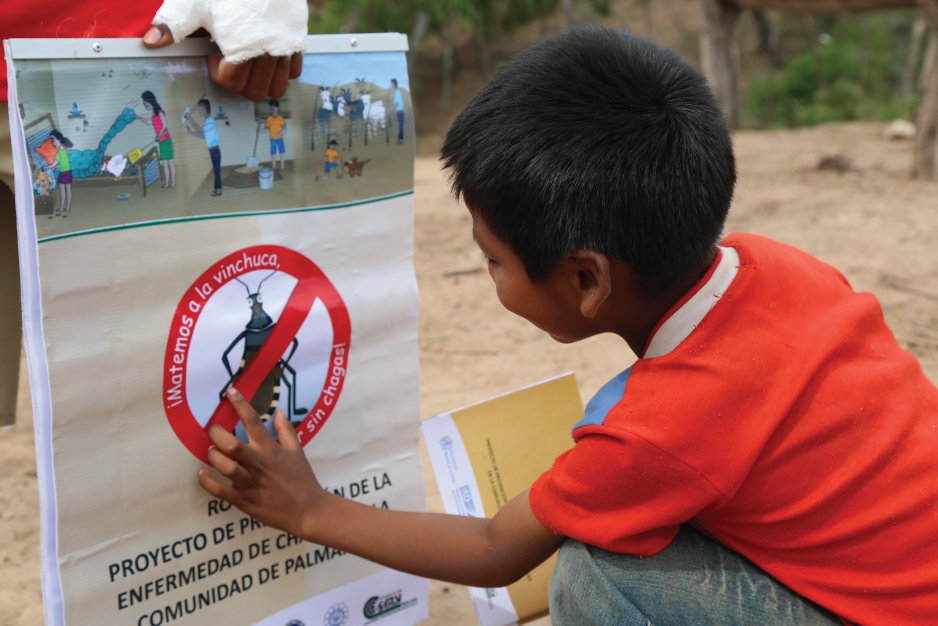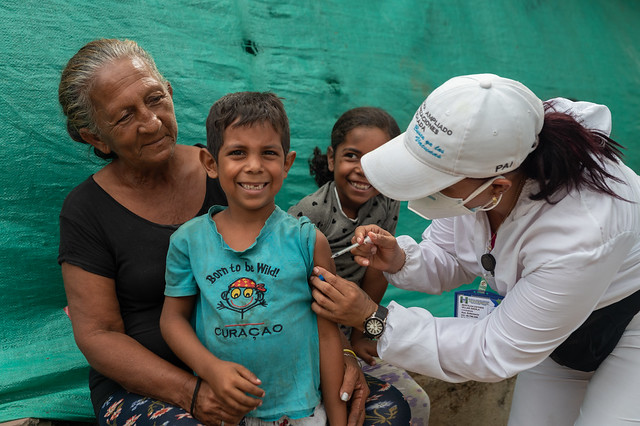
Spain
Partner in global health
For 3 years, the Spanish National Hip Fracture Registry has been collecting comprehensive data on the management of elderly patients with hip fractures and is already making a difference to quality of care.
Content was last updated 15 February 2023.
Spain and WHO: longtime partners in the quest for a healthier world
Spain’s support is helping WHO strengthen health systems around the world, stop polio, malaria and neglected tropical diseases, build better emergency medical teams, respond to pandemics, and more. A Member State of WHO since May 1951, Spain shares the Organization’s vision of building a world in which all people have access to affordable, good-quality health services. Spain has put health at the center of its new development bill, approved in May 2022.
Spain has bolstered the fight against COVID-19 with large commitments of funds and vaccine donations while providing targeted support for countries with fragile health systems in sub-Saharan Africa and Latin America. Concerned about the world’s readiness for future pandemics, Spain is supporting a process to develop an international convention or other instrument to strengthen pandemic prevention, preparedness and response.
Spain is a member of the High-Level Coalition and Energy, which is working to make a healthier world by expanding access to clean, sustainable energy.
Spain is also a world leader in the field of organ and tissue transplantation and is working with WHO to increase the availability of transplants; these procedures offer enormous potential for saving and improving lives but are out of reach of many who need them, especially in lower-income countries.
Learn more
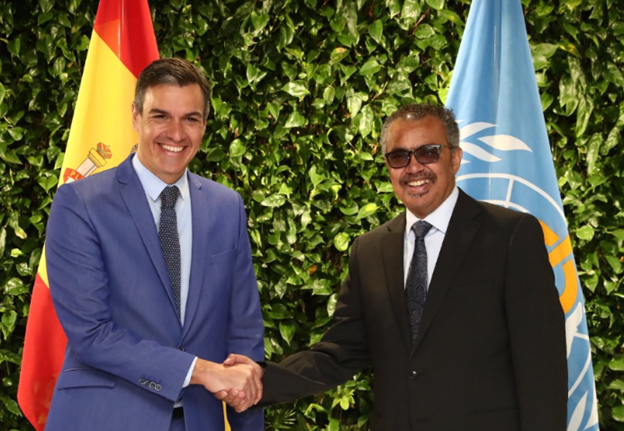
Photo: ©Pool Moncloa/Fernando Calvo
Prime Minister of Spain Pedro Sánchez Pérez-Castejón and WHO Director-General Tedros Adhanom Ghebreyesus at a 7 July 2022 meeting in Geneva. The leaders discussed expanding cooperation
on women’s sexual and reproductive health, the effects of climate change on health and other issues.
Working for stronger health systems, a key to universal health coverage
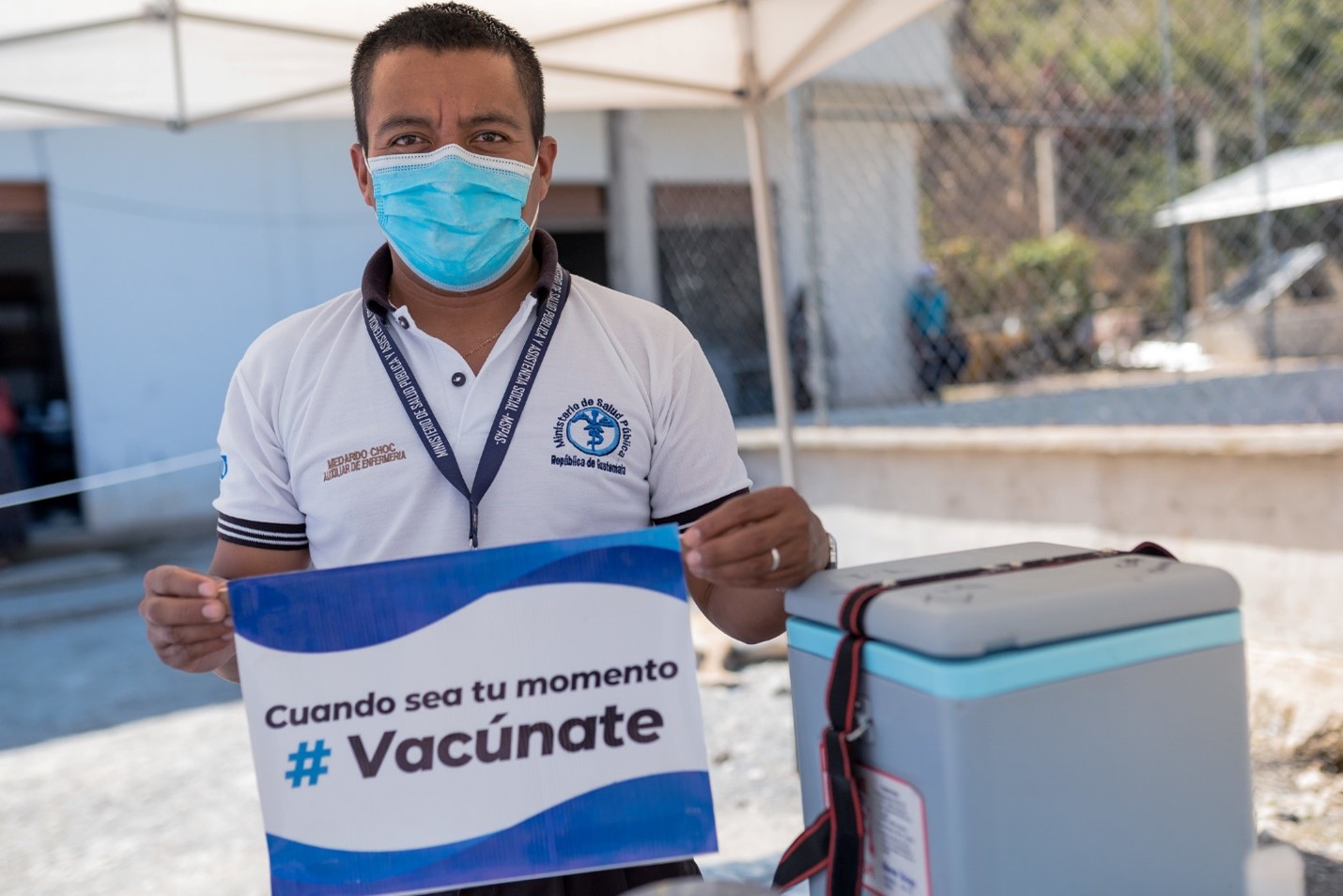
Photo: ©WHO/Víctor Sánchez
Spain has been a strong supporter of COVID-19 vaccination campaigns in Latin America. Above: In March 2021, health personnel, midwives and other priority groups received their first dose of COVID-19 vaccine in Campur, a municipality in the department of Alta Verapaz, Guatemala.
Universal health coverage means that everyone has ready access to the full spectrum of quality health services for all stages of life, without suffering financial hardship. Those services run from health promotion, to prevention, treatment, rehabilitation and palliative care.
Spain’s Agency for International Development Cooperation (AECID) is funding work to bring innovation to the way health care is organized and delivered, so that more people can receive high-quality, efficiently managed services.
AECID is also funding the development of a WHO Academy course for providers of essential and emergency surgery in lower-resource settings. The course is designed to build the knowledge and skills of physicians to expand access to children’s surgery, safe anaesthesia, care for trauma, abdominal emergencies, obstetric emergencies and more; today, in low- and middle-income countries, nine out of ten people cannot access even the most basic surgical services.
Spain is also a member of UHC2030, a multi-stakeholder platform that unites diverse voices and perspectives to work toward universal health coverage.
Learn more
Organ and tissue transplantation
Organ donation and transplantation is in great demand the world over but is especially scarce in lower-income countries in Africa and southeast Asia. According to estimates, the transplants performed cover only 10% of patients in need. As a consequence, some patients resort to illegal and unethical means to obtain a transplant organ.
To save lives, improve patients’ quality of life and combat organ trafficking, the Ministry of Health of Spain is providing funds and expertise to WHO to help countries develop sustainable, self-sufficient organ transplant systems.
The Ministry is also an ally of WHO in advocating for tissue donation and transplantation, and in raising awareness of the many medical uses of tissues, among them, restoring eyesight and mobility.
Through its Organización Nacional de Trasplantes (ONT), Spain runs the Global Observatory on Donation and Transplantation, the world’s most comprehensive source of data on the subject. In 2008, WHO designated the ONT as a collaborating center on donation and transplantation. The center contributes to data collection in the field, providing evidence on worldwide practices.
Learn more
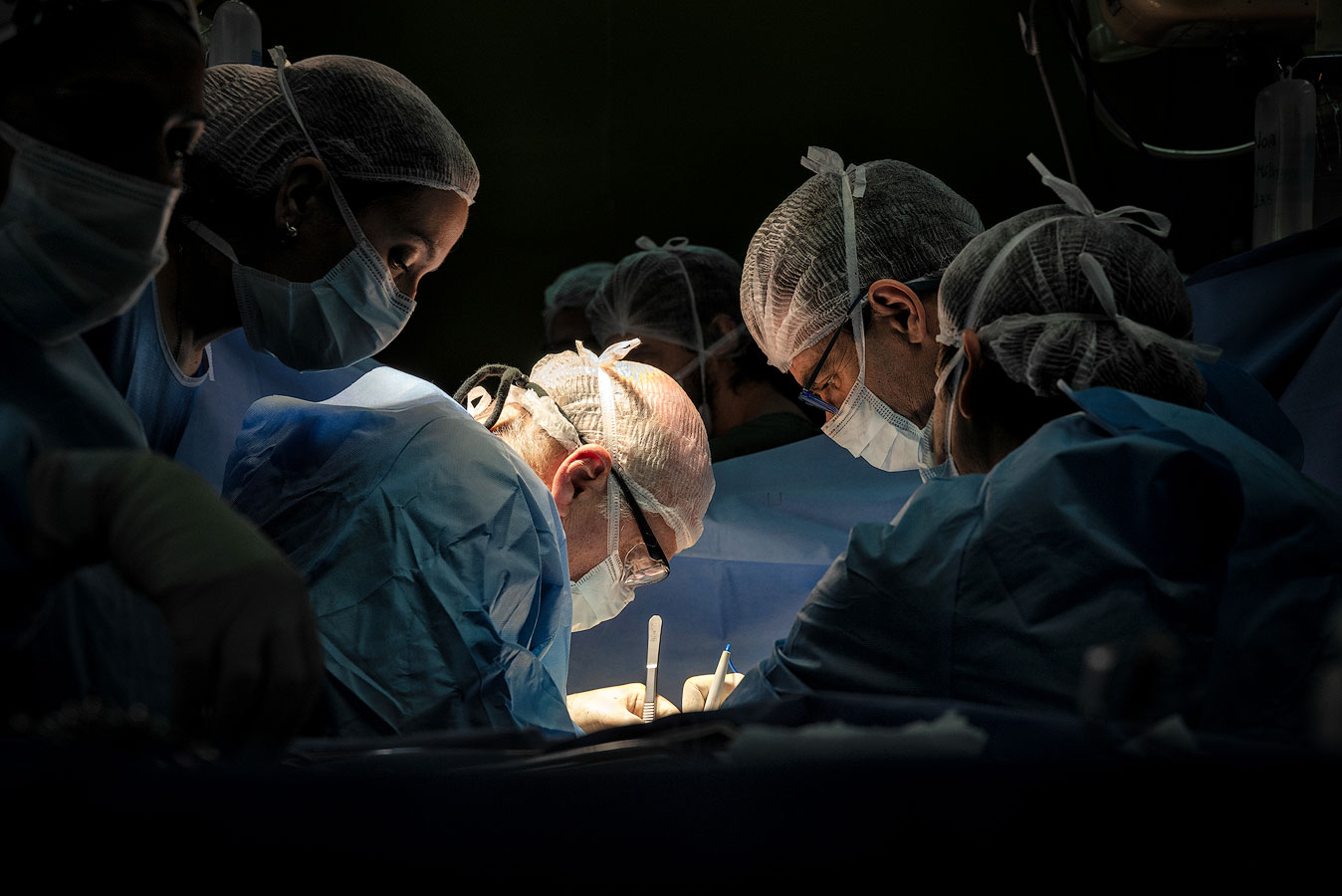
Photo: © PAHO
Less than 10 percent of transplants that are needed are performed, according to estimates.
Polio
Spain is a longtime ally in the fight against polio, having contributed to the Global Polio Eradication Initiative (GPEI) since its inception in 1988. Back then, polio paralyzed more than 1000 children every day. Today, with more than 2.5 billion children immunized, polio cases have dropped by 99 percent and wild poliovirus still circulates in only two countries, Afghanistan and Pakistan, where the fight is now concentrated.
Learn more
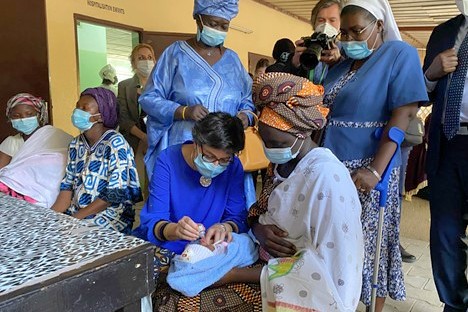
Photo: ©WHO/Chad
Arancha González Laya, Spanish Foreign Minister (2020-2021) administers the polio vaccine to a newborn in N’Djaména, Chad. Ms. González Laya served as a Gender Champion for Polio Eradication, as has
her successor, José Manuel Albares.

